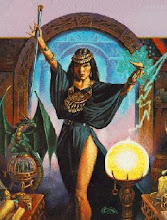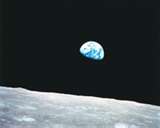Ever wonder how a calendar year was decided?
Old Egyptian
You probably already know the ancient Egyptians were the first to detail time in a more refined measured system, based on the flooding of the Nile and the rotation of the earth around the sun. Our star, the sun, we named "Sol" which is why we call it a SOLar year. There is only one "sol-ar" system because only one star is named Sol. So anyway....
Our calendar grows more inaccurate with each passing year, since the earth's rotation has slowed and time is marked without this consideration. Some cultures, like Islam, determine their year based not on the sun's rotation but the lunar cycle.
The moon was unimportant to the ancient Egyptians; their only seasonal concern was the flooding of the Nile and thus developed a 365-day year. It did not remain so, however.
This is a remnant of an ancient Roman calendar, who adopted the Egyptian way, and separated the days into 12 months, which would have either 29 or 31 days depending on the holy days contained in that month. This holds true today. The word month is actually spelled "moonth" which meaning is clear. We get the names of our months from the Romans as well, who started their year in March.
Beginning of Roman year:
"Martius" (March) named for Mars, god of war
"Aprilis" (April) signifying the beginning or blossoming - "aperire" in Latin means "to open"
"Maius" (May) named for goddess of fertility
"Junius" (June) named for goddess of the moon
"Quintillus" (July) is #5 in Latin, for 5th month
"Sextilis: (August) is #6, for 6th month
"September" (same) is #7, for 7th month
"October" (same) is #8, for 8th month
"November" (same) is #9, for 9th month
"December" (same) is #10, for 10th month
"Januarius" (January) named for god of gateways
"Februarius" (February) festival of purification
Two of these months would change during the reigns of Emperors Quintillus and Sextilis, becoming July and August. They would each have 31 days because there were holy days during each, honoring Julius Caesar and Augustus Caesar. This still holds true today.
The Julian Calendar also ushered in some changes by way of Julius. The Roman calendar has 355 days and the solar year was 365.25 days. To correct it, the Romans added an extra month every other year. This worked somewhat for awhile, but it made the Roman year longer than the solar year. So Julius Caesar commissioned a Greek astronomer to fix the problem and after much calculation, adding and subtracting, we have the leap year.
solar-lunar calendar
Caesar was pleased with the new calendar but the Roman year was by now so out of line with the seasons, he had to affect drastic change. In 46 BC he added 67 days between November and December. This resulted in a year that lasted 445 days. It would be the standard calendar in Europe until the 16th century and Pope Gregory VIII. (Hence the naming of today's 12-month calendar "Gregorian").
Mayan
Here's something interesting: We use the initials "BC" to show time "before Christ" and "AD" to show time "anno dominae" or "year of Our Lord", which is the start of the year 1. It is called the first year to show time beginning when Christ was said to walk the earth. Otherwise, our year would look very different; think of the Chinese system of keeping time using the approximate start of their civilization over 5000 years ago. Only "most" of the world uses BC and AD. If you call a year BCE it means "Before the Common Era" and CE which means "Common Era". It refers to time without making allusion to religion.
It was the Romans, again, who decided that the calendar time should begin with the founding of the city itself, which would have been about 753 BCE. So when the year 1 CE appeared the Romans would've dated it 754 CE, or one year into the Common Era. The start of time-keeping we still use today. We've been marking time now slightly over 2000 years since that year 1 CE, or AD.
Those initials lead to a very important fact: the birth of Christ. The Roman calendar of marking time was used in the early years of Christianity. This lasted until the end of the reign of Emperor Diocletian, which lasted until the 6th century BCE when a monk named Dionysis Exegesis set out to date the birth of Jesus Christ:
By moving backward from Diocletian's reign, he was able to place the birth at December 25, 753 CE. This date, therefore would be the beginning of the year 1 CE, or as we mark it, AD (year of Our Lord) In Medieval times, Christmas and New Year was the same day. Although used for centuries,we now know he was completely inaccurate. Jesus Christ obviously could not have been born after 4 BCE. However, his standard of dating is still used all over the world. we also use BCE (Before the Common Era) and CE (Common Era) in place of the traditional BC and AD as explained earlier.
There is serious talk of changing our calendar, favoring a 13-month year which would make every month be of equal days, with a special "World Holiday" at the end of the year.
Someday soon we may be using a very different calendar, but for now the Gregorian time-keeper has a secure place.
Old Gaelic















































